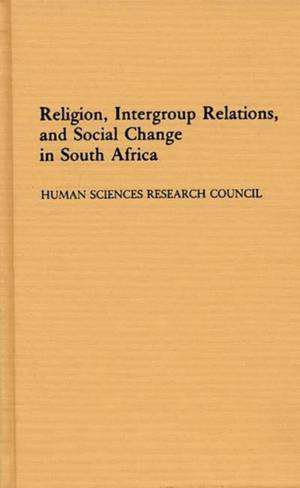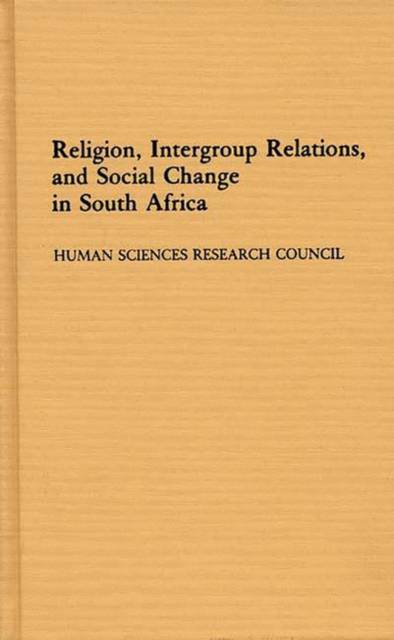
- Afhalen na 1 uur in een winkel met voorraad
- Gratis thuislevering in België vanaf € 30
- Ruim aanbod met 7 miljoen producten
- Afhalen na 1 uur in een winkel met voorraad
- Gratis thuislevering in België vanaf € 30
- Ruim aanbod met 7 miljoen producten
Zoeken
Religion, Intergroup Relations, and Social Change in South Africa
Gerhardus C Oosthuizen, J K Coetzee, J W de Gruchy
€ 110,45
+ 220 punten
Omschrijving
A complex and unpredictable factor in the explosive South African conflict, the Christian churches will almost certainly play a key role in its ultimate resolution. This book, which is based on a four-year research project, explores the possible dimensions of that role through a systematic examination of the connections between religion and the social, political, and economic life of the nation. Focusing on critical issues in the current debate, the authors look at how religion and religious attitudes function in facilitating or restraining social change and what consequences this may hold for South Africa's future.
The authors begin by describing the social role fo religion in South Africa, together with the particular issues that have drawn churches into the debate. They provide comprehensive profiles of the patterns of religious affiliation and attitudes that characterize contemporary South Africa. Next they assess the social impact of various denominations and movements, including Afrikaner civil religion, the Black indigenous churches, and pietistic religious groups. Ongoing theological debates on human rights, racial equality, the power structure of society, and the question of violence are considered in detail. The concluding chapter integrates the findings of the study and considers religious values as an instrument for developing social consciousness and a commitment to universal justice. This authoritative analysis of the broader dimensions of religion in South Africa makes a significant contribution to our understanding of religion as a factor in contemporary social and political processes. It will be of interest to students and specialists in African studies and to scholars concerned with the role of religion in the modern world.Specificaties
Betrokkenen
- Auteur(s):
- Uitgeverij:
Inhoud
- Aantal bladzijden:
- 252
- Taal:
- Engels
- Reeks:
Eigenschappen
- Productcode (EAN):
- 9780313263606
- Verschijningsdatum:
- 21/11/1988
- Uitvoering:
- Hardcover
- Formaat:
- Genaaid
- Afmetingen:
- 140 mm x 216 mm
- Gewicht:
- 439 g

Alleen bij Standaard Boekhandel
+ 220 punten op je klantenkaart van Standaard Boekhandel
Beoordelingen
We publiceren alleen reviews die voldoen aan de voorwaarden voor reviews. Bekijk onze voorwaarden voor reviews.











